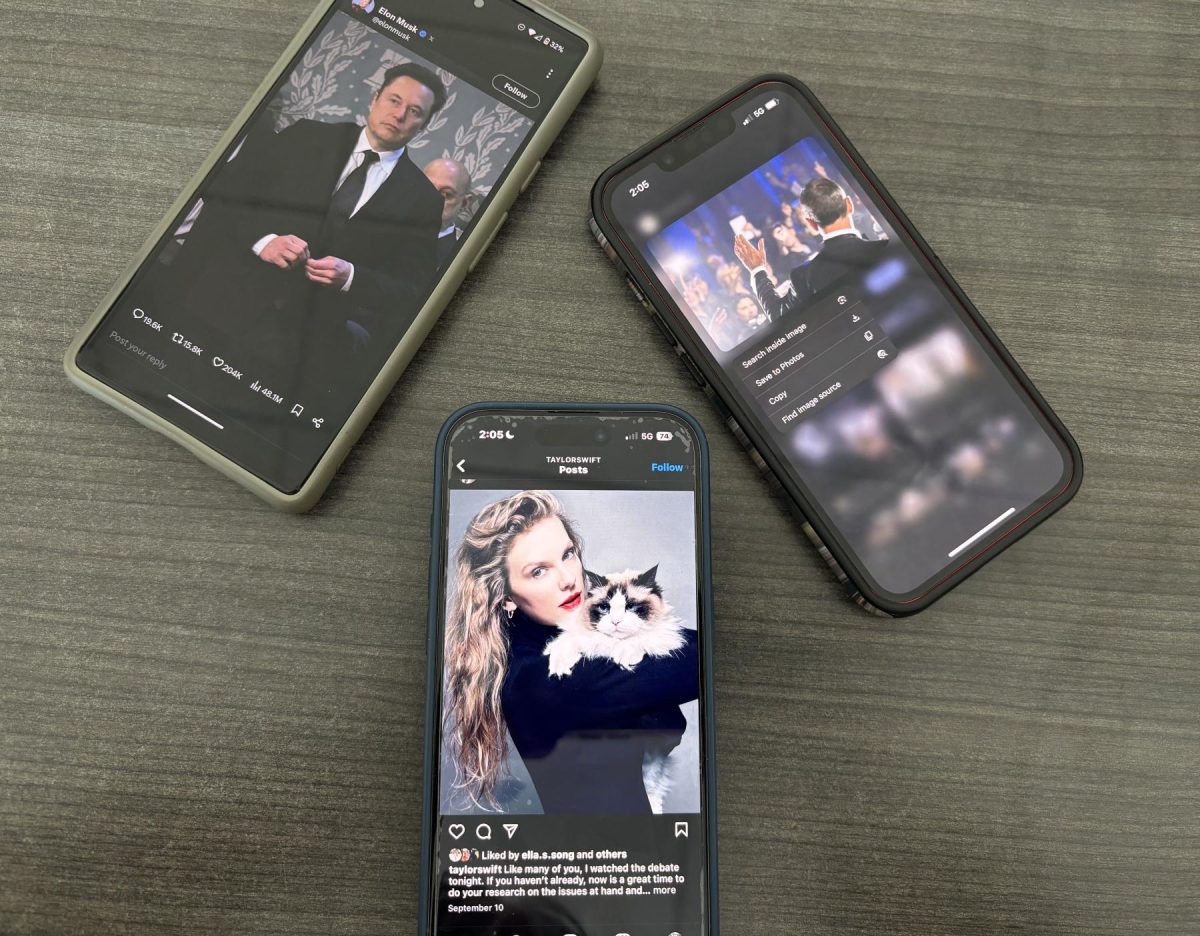Imagine you are scrolling through your Instagram feed the day after the September 10th presidential debate between Kamala Harris and Donald Trump. Suddenly, you come across a video that has been edited to make one of the candidates’ remarks appear differently than what was originally intended. You go back to your home page, and see that Taylor Swift herself has come out and said that she endorses presidential candidate Harris. All of this misinformation and direct endorsement… How will it affect the election?
Social media has drastically changed even within the last couple years. Even with efforts made by social media platforms, misinformation and doctoring of media often slip through the cracks into the eyes of the public.
A popular song made by Charlie XCX, 365, was edited and remixed with Kamala Harris’ remark, “You think you just fell out of a coconut tree? You exist in the context of all in which you live and what came before you” (Forbes). This catchy tune became a popular TikTok and Instagram Reels audio.
A similar example of this for former President Trump can be seen in countless social media sound bytes. In the recent presidential debate he mentioned that, “In Springfield, they’re eating the dogs. The people that came in. They’re eating the cats. They’re eating — they’re eating the pets of the people that live there,” (ABC). The audio has been used on TikTok and Instagram Reels. People have been making videos of their pets in costumes appearing like food, and saying that their pet is “hiding” from the people in Ohio.
Former President Trump also used deepfakes to make him appear to be endorsed by various celebrities, including Taylor Swift. Swift later came out by saying that, “Recently I was made aware that AI of ‘me’ falsely endorsing Donald Trump’s presidential run was posted to his site,”(Taylor Swift’s Instagram). Trump supporters used AI to alter a previously democratic image of Swift that said, “Taylor wants you to vote for Biden,” to say, “ Taylor wants you to vote for Trump.” This almost caused a lawsuit between Trump and Swift as he was using this to his advantage and falsely claiming her endorsement.
Social media also poses a way for presidential candidates to reach their base directly, without being blocked by the Federal Communications Commission (FCC). Candidates can say whatever they want, and not be censored or regulated. This can be beneficial as they can reach their audience more often and less formally through the use of short form videos like on TikTok or Instagram. They are not confined to TV, radio, and newspapers that are far less frequent and pick and choose what they show.
However, it has its downsides. This level of informality allows candidates to virtually say whatever they want with little fact checking. They can say whatever is necessary to gain support. The general population can edit the candidate saying whatever they want, leading to misinformation, and the loss of support of a candidate due to something they never said.
Celebrity endorsement also may play a crucial role in this year’s election. Celebrities are more and more vocal about their political opinions, even celebrities with huge fan bases. Taylor Swift endorsed Harris shortly after the presidential debate on September 10th. The new poll from YouGov found just eight percent of voters said Swift’s endorsement would see them “somewhat” or “much more likely” to vote for Harris,” (The Independent). Various other celebrities endorsed Harris as well including Ariana Grande, John Legend, Cardi B., Billie Eilish, FINNEAS, Charli XCX, etc. On the other side, Kid Rock, Hulk Hogan, Elon Musk, etc. Voters may change their opinion if their favorite celebrity endorses a certain candidate to do a “service for their favorite celebrity.”
All in all, it will be interesting to see how celebrity culture and social media will affect this next election.



